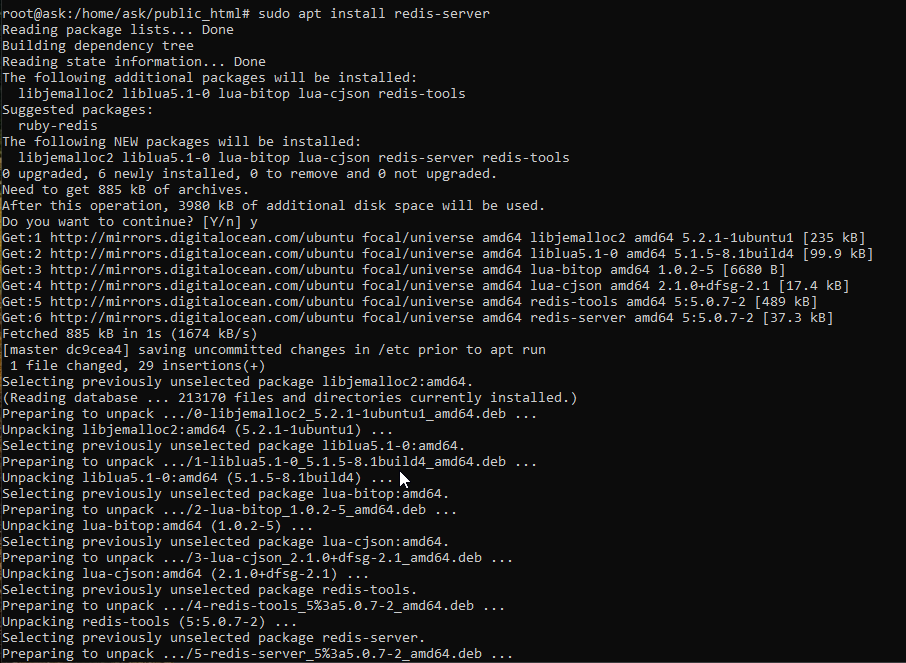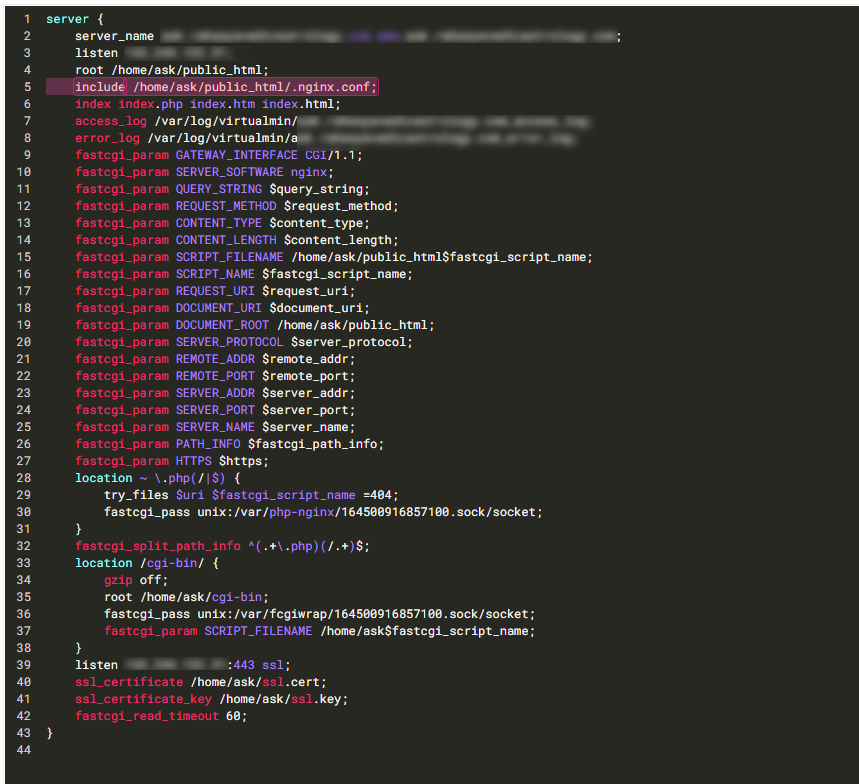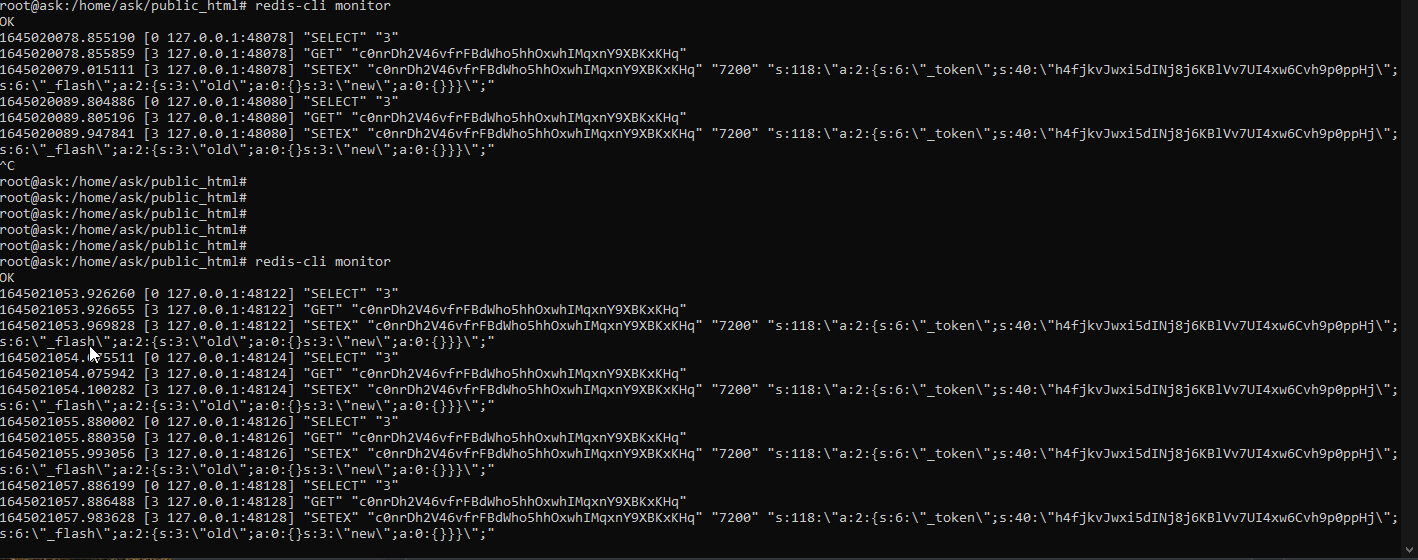Issues getting Flarum to work on new host
-
@phenomlab i did execute that command, the inner discussion pages still not loading

@Hari said in Issues getting Flarum to work on new host:
i did execute that command, the inner discussion pages still not loading
If you’d executed it, then it wouldn’t have installed when I ran it
@Hari said in Issues getting Flarum to work on new host:
the inner discussion pages still not loading
This is also expected as you haven’t included the
.nginx.conffile. Hold on a second. -
@Hari works now - see config below (highlighted section)
-
undefined phenomlab referenced this topic on 16 Feb 2022, 14:10
-
@phenomlab is this config file?
-
@phenomlab is this config file?
@Hari Your NGINX site config file, yes. Essentially, we just include the
.nginx.conffile in there so it’s loaded when the site is. You needmod_rewritefor Flarum to work
-
@Hari Your NGINX site config file, yes. Essentially, we just include the
.nginx.conffile in there so it’s loaded when the site is. You needmod_rewritefor Flarum to work
@phenomlab could you tell me the path of this file
-
@phenomlab could you tell me the path of this file
@Hari Sending in PM for security reasons
-
@Hari Redis also functioning as expected
-
@phenomlab i think my server has no proper ssl configured
should i need to set this to default? at domain level (virtualmin server ) lets encrypt also failing to issue certificate
i think i should change IP to my subdomain in nignx file? at the above screenshot area?
-
failure reason
Domain: www.ask.domain.com Type: unauthorized Detail: No TXT record found at _acme-challenge.www.ask.domain.com -
failure reason
Domain: www.ask.domain.com Type: unauthorized Detail: No TXT record found at _acme-challenge.www.ask.domain.com@Hari You should only apply the certificate at Virtualmin level, so here for example. You’ll need to update your DNS first before you can get a certificate.
-
@Hari You should only apply the certificate at Virtualmin level, so here for example. You’ll need to update your DNS first before you can get a certificate.

@phenomlab sorry, i have no clue where to update DNS
i have pointed ask.domain.com to my DO IP at CF
anything else that needs to be done?
-
@phenomlab sorry, i have no clue where to update DNS
i have pointed ask.domain.com to my DO IP at CF
anything else that needs to be done?
@Hari said in Issues getting Flarum to work on new host:
sorry, i have no clue where to update DNS
i have pointed ask.domain.com to my DO IP at CFThat’s all you need to do. Let me see if I can get the cert to work
-
@Hari said in Issues getting Flarum to work on new host:
sorry, i have no clue where to update DNS
i have pointed ask.domain.com to my DO IP at CFThat’s all you need to do. Let me see if I can get the cert to work
@phenomlab thanks, daily upvote limit reched
-
@phenomlab thanks, daily upvote limit reched
@Hari said in Issues getting Flarum to work on new host:
thanks, daily upvote limit reched
Yeah, I need to fix that !!
-
@Hari said in Issues getting Flarum to work on new host:
thanks, daily upvote limit reched
Yeah, I need to fix that !!
@phenomlab do i need to update the subdomain at Nginx config files? i have seen IP there
-
@phenomlab do i need to update the subdomain at Nginx config files? i have seen IP there
@Hari No. Leave that as is
-
@phenomlab thanks, daily upvote limit reched
@Hari said in Issues getting Flarum to work on new host:
daily upvote limit reched
Should be resolved now. Try upvoting again (same for @crazycells)
-
@phenomlab ok, i have checked gt matrix looks like response time is very slow how can i increase it?
-
@Hari said in Issues getting Flarum to work on new host:
daily upvote limit reched
Should be resolved now. Try upvoting again (same for @crazycells)
@phenomlab i am seeing upvote limit is 10 still could not upvote
-
@phenomlab ok, i have checked gt matrix looks like response time is very slow how can i increase it?
@Hari As you are running this domain through CF, you should enable the caching and protection there. At the moment, you are pointing to the server directly.
Did this solution help you?
Hello! It looks like you're interested in this conversation, but you don't have an account yet.
Getting fed up of having to scroll through the same posts each visit? When you register for an account, you'll always come back to exactly where you were before, and choose to be notified of new replies (ether email, or push notification). You'll also be able to save bookmarks, use reactions, and upvote to show your appreciation to other community members.
With your input, this post could be even better 💗
RegisterLog in




